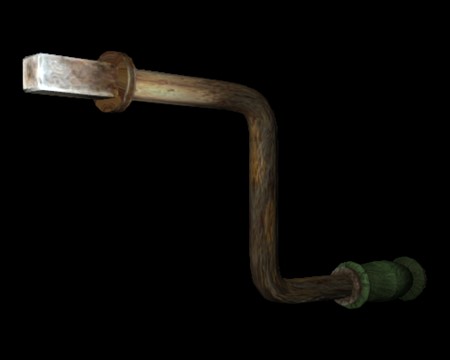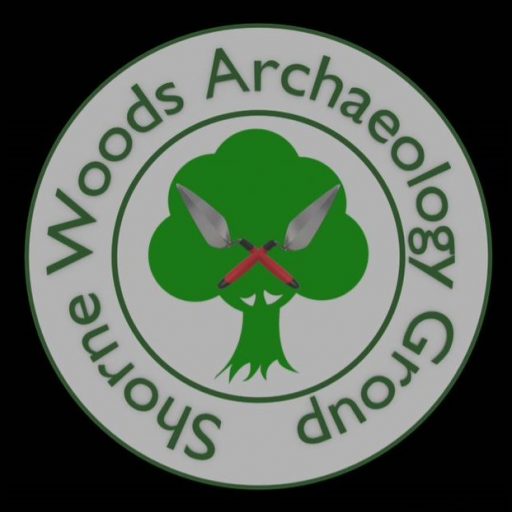Our dad’s name was Edgar (Ted) Amos Goodwin and our mum was Rosina. Our dad was born in 1910 and worked for AEI at Northfleet for 25 years before taking the job of Wet Miller, in the wash plant at the clay works in Shorne Woods and worked there until its closure in 1964. (The wet miller would have been responsible for keeping the wash plant running). He transferred to Swanscombe chalk pit and worked as a pump attendant and completed his 20 years-service with APCM, for which he was awarded an Eterna Matic 1000 wrist watch.
He continued to work there, until he retired in 1975, when he was presented with an Ingersoll stainless steel pocket watch.
The 20 years-service wrist watch was selected from a Blue Circle Group (a group within the APCM group) catalogue that also included a pocket watch, ladies watch, two gold bracelets, two lever clocks, silver plate tea set, cutlery set, teas made and binoculars.
Eventually, due to length of service at Shorne, he was made up to foreman. This didn’t sit easily with him as he found it difficult to give orders but it was made easier as he treated the men well, which they appreciated and helped him when needed.
Raw clay and water were fed into the wash plant and turned into slurry by mixing them together using giant rotating blades. The slurry was then pumped to Bevans cement works at Northfleet, some six miles away, via a pipe line that ran underground alongside the A2.
Our dad sometimes took us to his workplace and we would have wait to be picked up by truck, at the General Gordon (a public house that stood in Cedar Avenue until it was destroyed by fire in 1992). We would be in the back of the truck, that had a canvas roof, together with some of the men being taken to work. Dad didn’t always go to work in the truck as on occasions he cycled.
The bus route from Kings Farm Estate to Shorne would not have been very frequent, which is probably why APCM provided the truck.
We entered the clay works site from the entrance on the A2 into what, to us children, looked like a forest. Our father used to say ‘be careful of the lions and tigers’, needless to say, we never saw any.
When we were on site we had to stay with our dad so consequently never really went very far away from the main area. Not always but mainly, we went at weekends when it was quieter, no bosses around!
Whenever we went on site, we went into the canteen building and there always seemed to be a roaring coke fire in the combustion stove. We used to have a cup of tea whilst sitting on one of the benches but don’t remember there being any other furniture in the room.
On one occasion the men cooked breakfast (now called a traditional English breakfast) on an upturned electric bar fire, whether this was a regular practice we don’t know but suspect that it was!
There were always cats around that were kept to keep the rat population down.
On one of our visits we watched as he put on waders to go into the slurry tank to clear a blockage, with shouts of ‘be careful’ following him in.
It was a 24 hour a day operation so the men had to do shiftwork to cover this, these were 6 to 2, 2 to 10 and 10 to 6 shifts. Sometimes it was needed that shifts would be 12 hours long to cover staff shortages.
The only names of people who worked there that we can remember are Bill Young, Spud Taylor and his brother Reg.
It was a really cold, bleak place in winter, dad suffered with rheumatism in his shoulder and would often need help taking his coat off when he came home. All the men wrapped their feet in strips of cloth, that were always referred to as toe rags, before putting on their ‘wellies’, to try and stop their feet from freezing. Dad always used Sloan’s liniment for his rheumatism which ‘stank to high heaven’! Mum told us the story of a special evening for them that she had planned, putting on her best clothes and perfume but dad came home smothered in Sloan’s so the evening didn’t turn out as she had hoped!
When we were on site, we played with homemade bows and arrows and in the autumn collected chestnuts, that we roasted in front of the fire at home.
The only accident that we know dad had was when he stood on a rusty nail and had to go to hospital for a tetanus injection.
Old railway sleepers were cut up and brought home to be burnt on our fire.
The Christmas party at the APCM club house in Northfleet High Street was always something to look forward to.
From Ted :
I had rides on both the train and the conveyor belt, sitting in a tipper truck on the train and the rubber belt of the conveyor, quite exciting for a young boy. The trucks were about 6’ long and 3’ wide and the conveyor belt about 2’ 6” wide.
The train engines were diesel and had to be started with a hand crank, two men had to turn it and when it was going fast enough one had to let go and pull on the three compression knobs for the engine to start.
I still have two, line posts on my garden that were brought home from the site.
As told to Trevor Bent and Don Blackburn, November 2021. Ted & Pat have agreed that all or part of this may be used in any future publication.
Note from Trevor: during recent SWAG excavations at the clay pits we found a crank handle with a square hole, that would have been used to start the train engine.
A crank with a solid square end, similar to that pictured below, would have been used to start the train engine.





